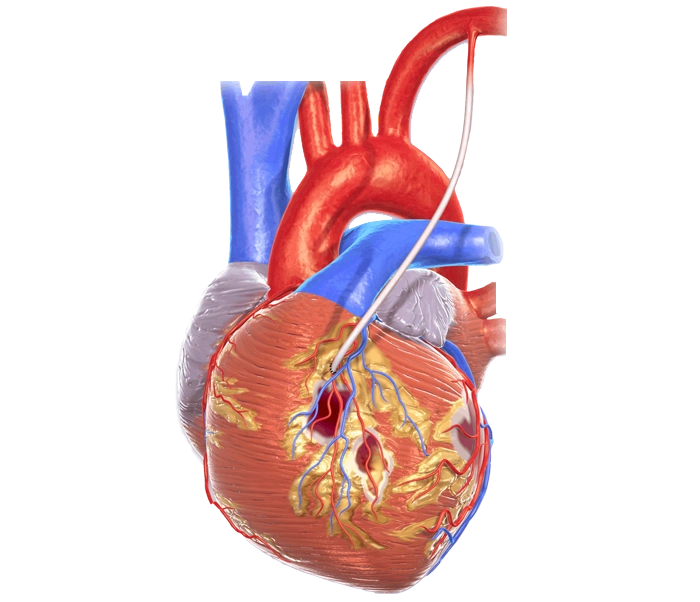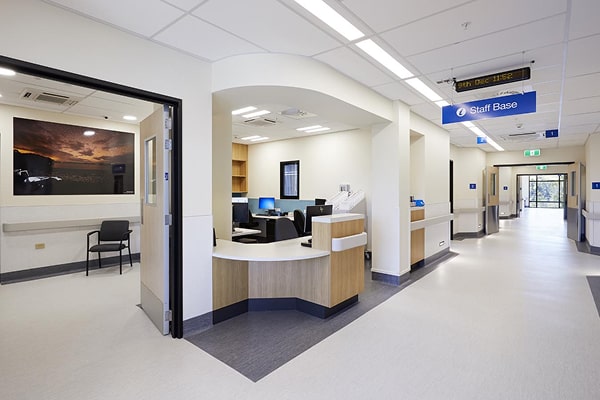Heart Bypass Surgery: An Advanced Treatment for Heart Disease
Heart bypass surgery, also known as coronary artery bypass grafting (CABG), is one of the most important and effective methods for treating serious heart problems caused by blockages or narrowing of the coronary arteries. This surgery is particularly performed in patients with coronary artery disease (CAD) who have issues such as reduced blood flow to the heart. This condition can lead to chest pain, heart attacks, and eventually heart failure.
In this article, we will thoroughly discuss heart bypass surgery, the various methods available, the treatment process, the benefits, and the importance of this surgery. We will also introduce the best medical centers in Iran that provide this treatment with the highest quality at affordable prices.
What is Heart Bypass Surgery?
Heart bypass surgery is a surgical procedure where surgeons use healthy blood vessels from other parts of the body (typically from the leg or chest) to create a new pathway for blood flow to the heart. This new pathway bypasses the blocked or narrowed arteries, improving blood flow to the heart tissue.
Heart bypass surgery is typically performed when the coronary arteries are severely blocked and other treatments such as medications and lifestyle changes are ineffective. This surgery can significantly improve the patient’s quality of life and reduce the risk of heart attacks and heart failure.
Types of Heart Bypass Surgery
- Classic Heart Bypass (CABG):
In this procedure, the surgeon uses healthy blood vessels from the patient’s body to create new routes for blood flow to the heart. This method can include one or multiple bypasses. - Off-pump CABG:
In this type of surgery, the patient’s heart continues to beat naturally, and the surgeon performs the bypass without the need to stop the heart temporarily. This method has fewer risks and requires a shorter recovery time. - Internal Thoracic Artery (ITA) CABG:
This technique uses the internal thoracic arteries as grafts for the bypass, which provides better long-term results compared to using veins.
The Heart Bypass Surgery Process
- Pre-surgery Evaluation and Tests:
Before performing bypass surgery, the doctor evaluates the patient’s heart health, conducts blood tests, electrocardiograms (ECG), and various imaging tests such as echocardiography and angiography. - General Anesthesia:
Heart bypass surgery is performed under general anesthesia, meaning the patient will be deeply asleep during the procedure and will not feel any pain. - Surgical Procedure:
The surgeon makes an incision in the chest to access the heart. Then, the blocked sections of the coronary arteries are bypassed using healthy blood vessels taken from other parts of the patient’s body. - Post-surgery and ICU Recovery:
After the surgery, the patient is transferred to the intensive care unit (ICU) to be closely monitored by doctors and nurses to prevent any potential complications. - Recovery Period:
The patient usually stays in the hospital for a few days. After discharge, the patient typically requires home care and regular follow-up visits.
Benefits of Heart Bypass Surgery
- Increased Life Expectancy:
Heart bypass surgery reduces the risk of heart attacks and heart failure, allowing the patient to live a longer life. - Improved Quality of Life:
After undergoing heart bypass surgery, patients typically experience reduced chest pain, improved heart function, and increased physical ability. - Reduced Dependency on Long-term Medications:
Heart bypass surgery can help reduce the need for long-term heart medications such as pain relievers, blood thinners, and blood pressure medications. - Return to Daily Activities:
After recovery, patients are usually able to return to their normal daily activities, including exercise and work.
Risks and Complications of Heart Bypass Surgery
Although heart bypass surgery is generally considered safe, like any surgery, it may have some risks. These include:
- Infection
- Bleeding
- Heart attack or stroke
- Irregular heart rhythm (arrhythmia)
- Breathing difficulties
However, recent advances in surgical techniques and post-operative care have significantly minimized these risks.
Heart Bypass Surgery in Iran
Iran has become one of the leading destinations for heart bypass surgery. Iranian medical centers offer heart surgery services using the latest technologies and experienced surgeons at a fraction of the cost compared to Western countries.
Advantages of Having Heart Bypass Surgery in Iran:
- Specialized Doctors:
Heart surgeons in Iran are highly skilled and many have trained in top medical universities around the world. - Modern Equipment:
Iranian hospitals are equipped with the latest medical technologies and surgical techniques to treat heart diseases. - Affordable Costs:
The cost of heart bypass surgery in Iran is significantly lower than in many European and American countries. - Excellent Support Services:
Support services such as online consultations, translation assistance, airport transfers, and accommodation near hospitals ensure a comfortable experience for international patients.
Conclusion
Heart bypass surgery is a vital and effective treatment for patients suffering from heart diseases. With the use of advanced techniques, it can save lives and significantly improve the patient’s quality of life. Iran, with its experienced surgeons and modern equipment, has become one of the best destinations for this surgery. If you or someone you know requires heart bypass surgery, Iran could be an ideal choice offering high-quality treatment at affordable prices.














